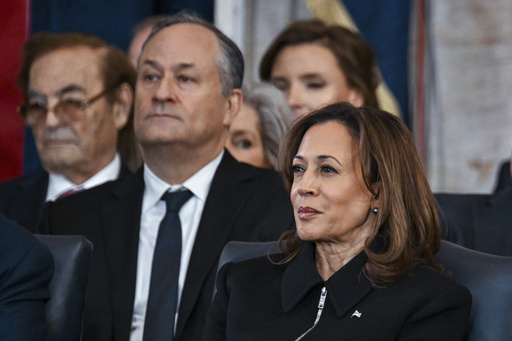
OXON HILL, Md. — In a critical moment for the Democratic Party, members will choose a new leader during a significant yet low-key Democratic National Committee (DNC) election set for Saturday. Facing challenges in reclaiming their political narrative against the Trump administration, Democrats gather here with over 400 DNC representatives from across all states and U.S. territories. Outgoing Chair Jaime Harrison has opted not to run again, signaling a transitional phase for the party.
Candidates vying for the DNC chair acknowledge the party’s struggling image, yet they shy away from proposing sweeping reforms. Nearly three months post-Trump’s popular vote victory and dwindling support among key demographics, party members remain at a loss in determining the exact reasons behind their setbacks.
Consequently, the leading candidates are adopting a firm stance against the Trump presidency. Ben Wikler, the chair of the Wisconsin Democratic Party and a frontrunner for the DNC chair position, emphasized the need for a vigorous response, stating, “As we reel with shock at the horror that Trump is visiting on communities across this country, we need a DNC and a DNC chair who’s ready to bring the intensity, the focus and the fury to fight back.”
This pivotal election occurs just under two weeks after Trump took office, as Democratic leaders grapple with the extensive range of executive orders, pardons, and personnel shifts emerging from the new administration. The newly elected DNC chair will be pivotal in shaping the party’s public image, strategizing political initiatives, and mending the party’s reputation.
A recent Quinnipiac University poll revealed that only 31% of voters hold a favorable view of the Democratic Party, contrasting sharply with the Republican Party, which enjoys a 43% favorable rating among voters. The leading contenders for the DNC chair—Wikler and Minnesota’s Ken Martin—are relatively low-profile state party chairs, both emphasizing a renewed focus on working-class voters, bolstering Democratic infrastructure nationwide, and enhancing the rapid response capability against Trump.
Both Wikler and Martin have pledged to uphold the party’s commitment to diversity and minority representation, a defining characteristic of modern Democratic values. However, if one of them is elected, he would be the first white male DNC chair since 2011.
Other candidates in the mix include Marianne Williamson, an activist and author, former Maryland Governor Martin O’Malley, and Faiz Shakir, who previously managed Bernie Sanders’ presidential campaign. Shakir has advocated for substantial reforms, arguing for closer ties with labor unions and critiquing an overemphasis on racial and gender divisions within the party. Unique as the first Muslim candidate for the chairmanship, Shakir notably opposed the formation of a Muslim caucus during a recent forum.
Despite this distinct positioning, Shakir has faced difficulties in gaining momentum. He opted not to engage in traditional fundraising tactics, presenting a humble booth decorated with crayon drawings by his children. On the other hand, competitors like Martin and Wikler hosted gatherings in spacious hotel suites equipped with professional marketing materials and provided amenities to their supporters.
Wikler has encountered scrutiny regarding his ties with prominent Democratic donor Reid Hoffman, the billionaire co-founder of LinkedIn. However, he has framed his fundraising expertise as a major asset, as the DNC chair is expected to generate millions of dollars to enhance Democratic electoral efforts.
Concerns linger within the party regarding its future direction. Jeanna Repass, chair of the Kansas Democratic Party and running for DNC vice chair, voiced her apprehension, stating, “As positive as I am and as hopeful as I am, I’m watching this in real time, thinking to myself, ‘We’re in real trouble because I don’t see a desire to change.’”

